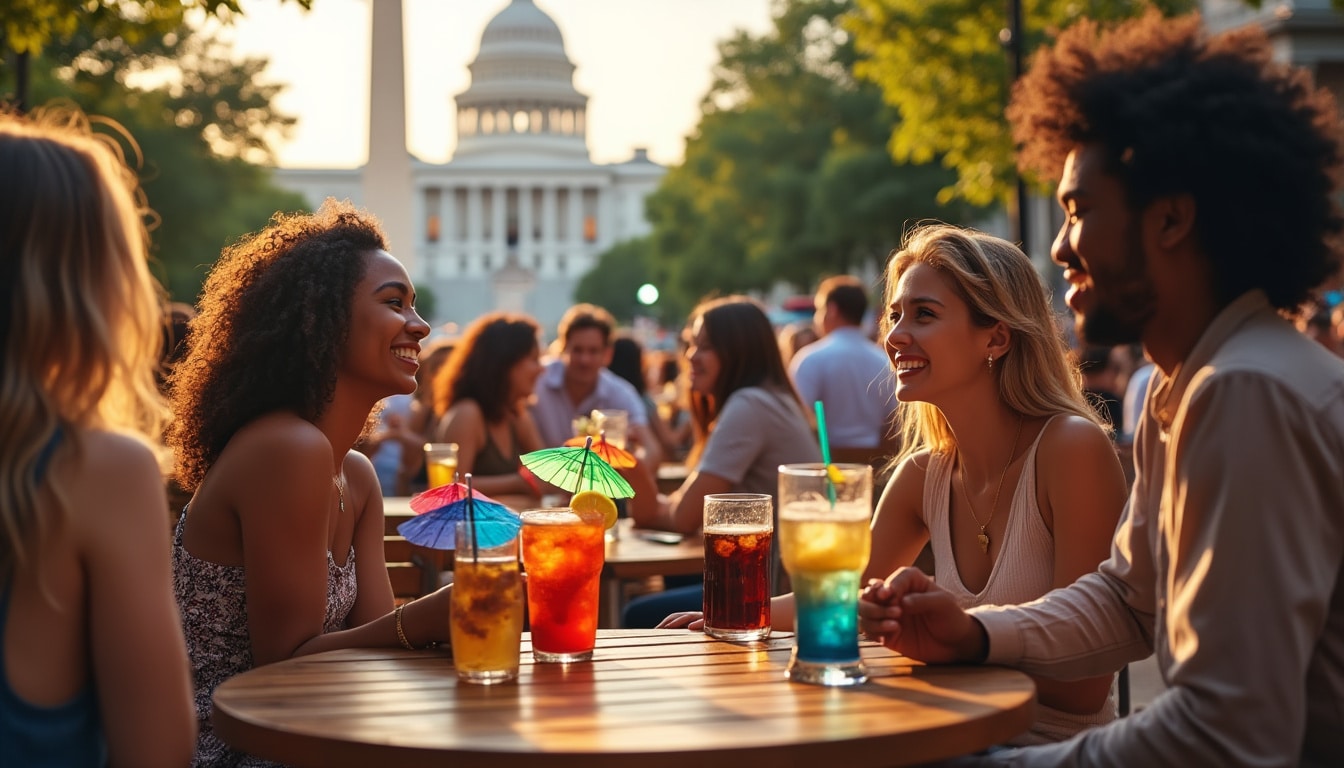Washington D.C., a lively hub of culture, politics, and history, is home to a unique blend of residents and visitors alike. Its dynamic nature calls for a clear understanding of the drinking laws and age restrictions that ensure safety, order, and enjoyment for everyone. From the bustling nightlife to the local breweries and distilleries, D.C. has stringent regulations governing the sale, consumption, and advertisement of alcohol. Let’s explore how these regulations shape the city’s vibrant drinking culture and contribute to a safer environment for all.
Understanding Washington D.C.’s Legal Drinking Age and Restrictions
The legal drinking age in Washington D.C. is set at 21 years old, aligning with national standards across the United States. This standard means individuals must be at least 21 to purchase, possess, or consume alcoholic beverages in the district. One important aspect to note is that it is illegal for anyone under the age of 21 to indulge in alcohol in public places such as bars, restaurants, and any licensed venue.
In efforts to combat underage drinking and promote safety, there are strict penalties for those caught violating these laws. Penalties include fines, community service, and the possible suspension of licenses for businesses that sell alcohol to minors. These measures aim to reduce the risks associated with underage alcohol consumption, which can range from health issues to increased chances of unlawful behavior.
Enforcement of these regulations is carried out diligently by the Alcoholic Beverage Regulation Administration (ABRA), which actively monitors compliance and takes necessary action against any offenders. As such, both residents and tourists are encouraged to abide by these guidelines to avoid legal trouble and contribute to a culture of responsible drinking.
Additionally, Washington D.C. law does not permit individuals under 21 to use fake identification to purchase alcohol. If caught, they face potential fines and a possible suspension of driving privileges. This serves as a deterrent and reinforces the importance of age verification across all alcohol-selling establishments.
Age Verification Solutions: Ensuring Compliance
Many establishments have adopted advanced age verification technologies to ensure they comply with D.C.’s alcohol regulations. These include ID scanners and software that detect fake IDs, which are essential in maintaining responsible service and minimizing the sale of alcohol to minors. The implementation of such technologies is crucial in places like D.C., where verifying a patron’s age accurately is a legal requirement.
These efforts are supported by the DC Bar Association and local businesses who participate in Alcohol Awareness Campaigns, which promote responsible behavior among patrons and instill a culture of trust and safety.
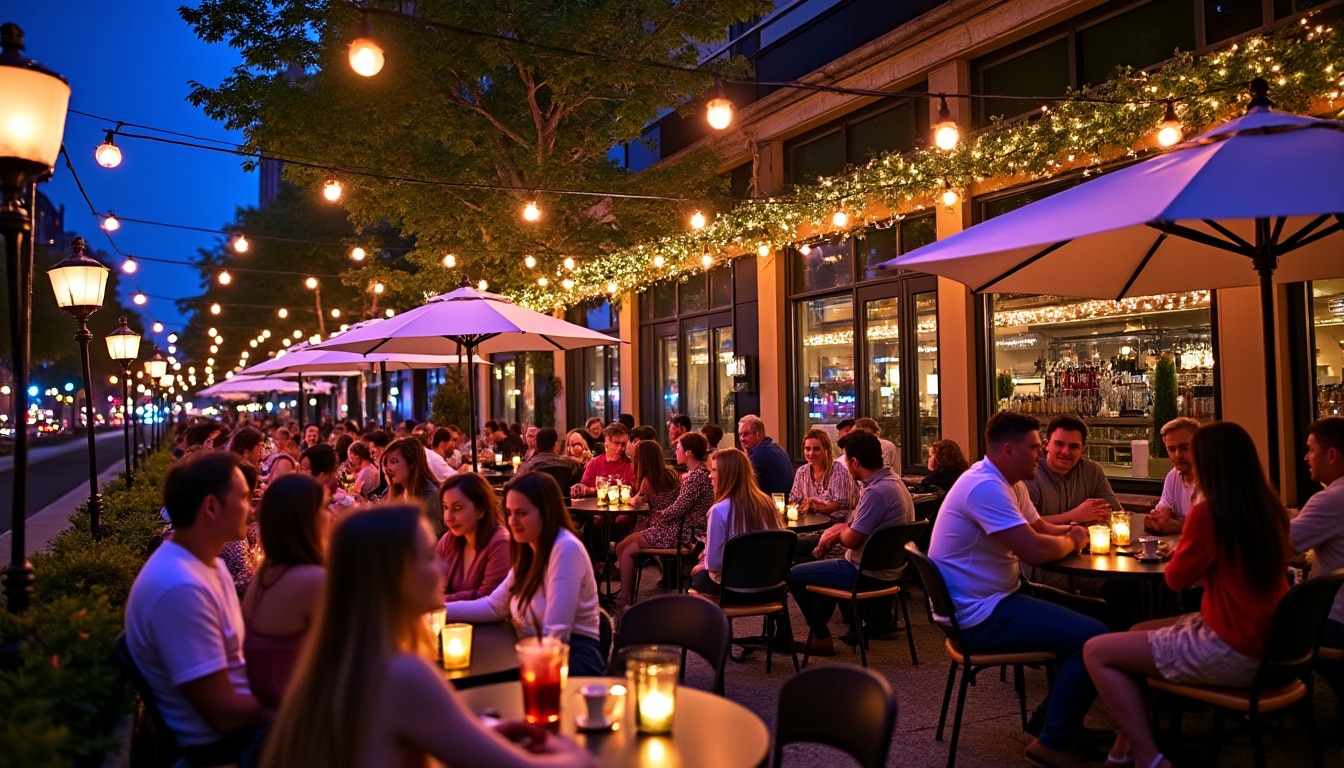
Alcohol Sales on Sundays: Open Doors and Few Restrictions
Unlike some states in the U.S., Washington D.C. has no statewide restrictions on the sale of alcohol on Sundays. This flexibility allows liquor stores, supermarkets, and other venues to open their doors and offer alcohol sales, benefiting both consumers and businesses alike. However, regulations do stipulate operational hours to manage responsible consumption behavior and to minimize potential disturbances to the community.
Typically, licensed establishments can sell alcohol from 9:00 a.m. to 10:00 p.m. on Sundays, providing ample time for consumers to purchase their beverages of choice whether it’s for home consumption or while dining out.
Importantly, while the district allows for Sunday sales, individual counties or jurisdictions may impose their own restrictions. It’s always advisable for consumers to verify specific details with local authorities or individual businesses to ensure compliance with any varying regulations.
Here is an insightful look into weekly alcohol sales in D.C., showcasing the days and authorized sales duration:
| Day | Alcohol Sales Start | Alcohol Sales End | Notes |
|---|---|---|---|
| Monday-Saturday | 7:00 a.m. | 2:00 a.m. | Bars and restaurants may have separate serving hours |
| Sunday | 10:00 a.m. | 2:00 a.m. | No statewide restrictions, check county-specific rules |
DC Nightlife and the Lack of Blue Laws
The absence of blue laws in Washington D.C. significantly enhances the city’s nightlife ambiance. Patrons can enjoy late-night dining and entertainment without being constrained by early closing hours often found in other states. This is a notable feature that draws tourists and locals to partake in the dynamic D.C. atmosphere, ultimately supporting local businesses and strengthening the city’s economic fabric.
Location-Based Restrictions: Schools, Churches, and Alcohol Sales
Strategic regulations exist to manage the sale of DC Liquor Control to ensure community safety and harmony. The sale of alcohol is restricted near schools and religious establishments, preventing easy access to minors and respecting community sensitivities. For instance, according to the ABRA, no alcohol can be sold within 400 feet of school premises, although this may vary slightly based on zoning laws specific to given areas.
Here are some key elements of these location-based restrictions:
- 📏 Proximity Limitation: Alcohol cannot be sold within specified distances from educational and religious institutions.
- 📜 Licensing Discipline: Strict procedures for obtaining licences near sensitive locations, including background checks and compliance with safety standards.
- 🚫 Enforcement and Penalties: Violations result in fines, license suspension, or even revocation.
It’s imperative for businesses to adhere to these rules not only to avoid penalties but also to contribute positively to their communities. The regulations reflect broader efforts towards underage drinking prevention, aiming to foster environments where alcohol is enjoyed responsibly and safely.
Responsible Beverage Service in Sensitive Areas
In areas near schools and religious establishments, serving alcohol responsibly extends beyond adherence to legal distances. Staff must be proficient in responsible beverage service, ensuring that patrons consume alcohol in moderation and avoiding sales to visibly intoxicated customers. This vigilance is a cornerstone of maintaining public safety and community trust.
Special Permits and Event Regulations in Washington D.C.
For those looking to host events in D.C. where alcohol will be served, understanding the various permits required is crucial. Whether it’s a private gathering or a large public festival, obtaining the correct licenses is a necessity to ensure compliance and avoid legal complications. The ABRA offers temporary event permits tailored to specific needs, depending on the size and nature of the event.
Common permits include:
- 🎉 Temporary Alcohol Permit: Required for one-time events where alcohol is served.
- 🍽️ Caterer’s License: Necessary for catering companies providing alcohol services.
- 🎇 Special Event Permit: Applies to large public gatherings, with additional conditions and regulations.
A thorough understanding of these requirements is facilitated by the ABRA, which guides event planners through the application process. The organization ensures that all vendors adhere to Washington D.C. Alcohol regulations necessary for hosting safe and successful events.
Here is a quick reference guide to the standard types of permits:
| Permit Type | Purpose | Applicability | Notes |
|---|---|---|---|
| Temporary Alcohol Permit | Single events | Events in licensed venues | Must specify duration |
| Caterer’s License | Alcohol service by caterers | All catering services | Vendor must be licensed |
| Special Event Permit | Large public events | Festivals, public gatherings | Subject to additional regulations |
Drink Responsibly DC: Promoting Safe Events
Ensuring a safe and controlled environment at events where alcohol is served is a priority in D.C. Through Drink Responsibly DC initiatives, event organizers are encouraged to implement strategies that promote moderation and safety. This includes training staff in responsible beverage service, providing non-alcoholic options, and ensuring clear signage regarding rules and expectations.
FAQs About Drinking and Age Restrictions in Washington D.C.
- Can alcohol be consumed in public parks in D.C.? 🍻 Alcohol can only be consumed in designated areas within public parks, with the necessary permits. Sales are not allowed without a permit.
- What is the penalty for public intoxication? 🚨 Penalties may include fines, community service, probation, or court-ordered treatment.
- Can alcohol be served on election days in D.C.? ✖️ No, selling or serving alcohol is prohibited on election days to ensure an unhindered voting process.
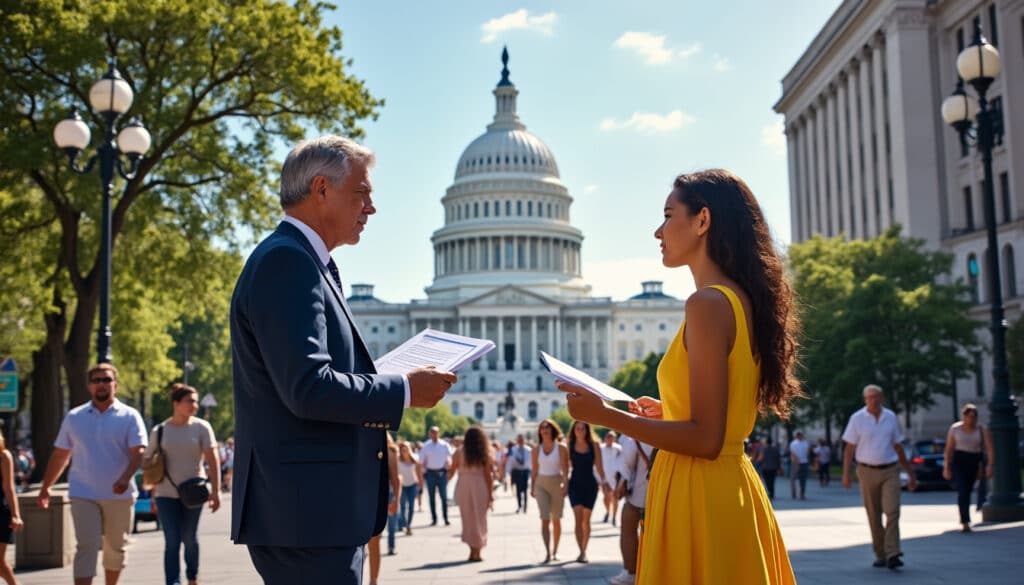
Legal Information and Rules in Washington DC
When navigating the ornate labyrinth of laws in Washington, D.C., it’s essential to have a comprehensive guide to understand the diverse legal frameworks that govern the nation’s capital. From understanding the depth of the District of Columbia’s legal codes to…
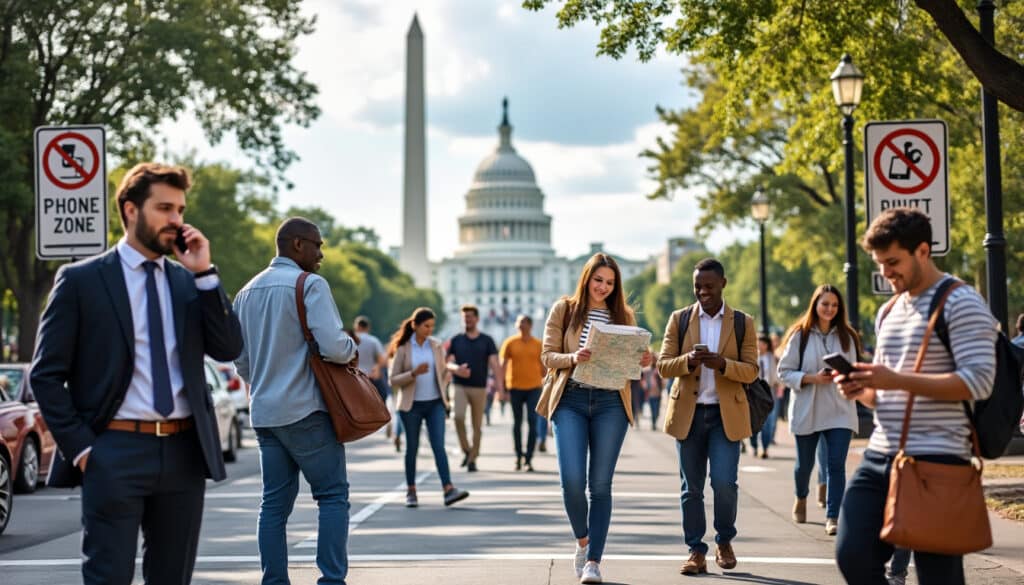
Calling and communication rules in Washington DC
As the hub of political decisions and cultural exchanges, Washington D.C. presents a unique environment for communication. The region is dynamic, filled with diverse languages and tech-savvy infrastructure aimed at seamless coordination. Understanding the calling and communication rules here can…
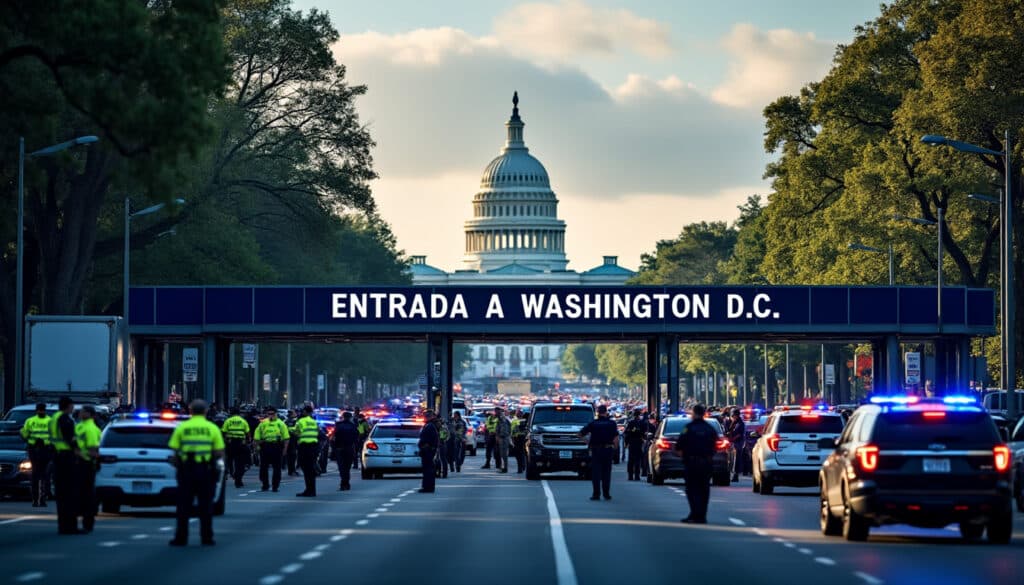
Criminal status and entry to Washington DC
Visiting Washington DC, a city steeped in history and thriving with cultural attractions, is a dream for many international travelers. However, navigating the complexities of entry requirements, especially with a criminal record, requires careful attention to rules and regulations. Entry…
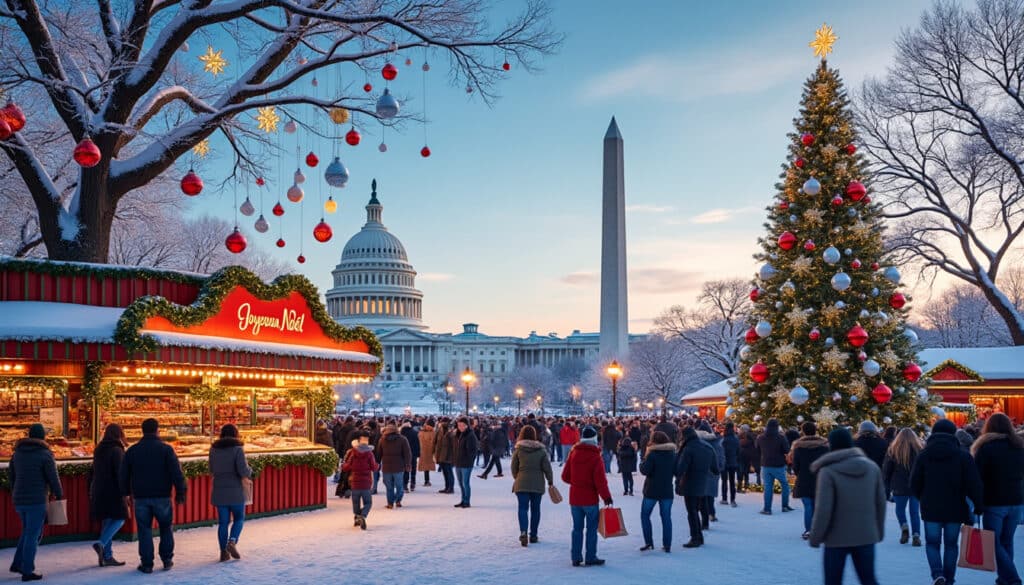
Holiday openings in Washington DC
Explore Washington DC’s remarkable holiday offerings this season. Whether you’re a local or a visitor, the nation’s capital has something festive for everyone. From volunteer opportunities at reputable nonprofits to countless seasonal jobs, DC transforms into a hub of holiday…
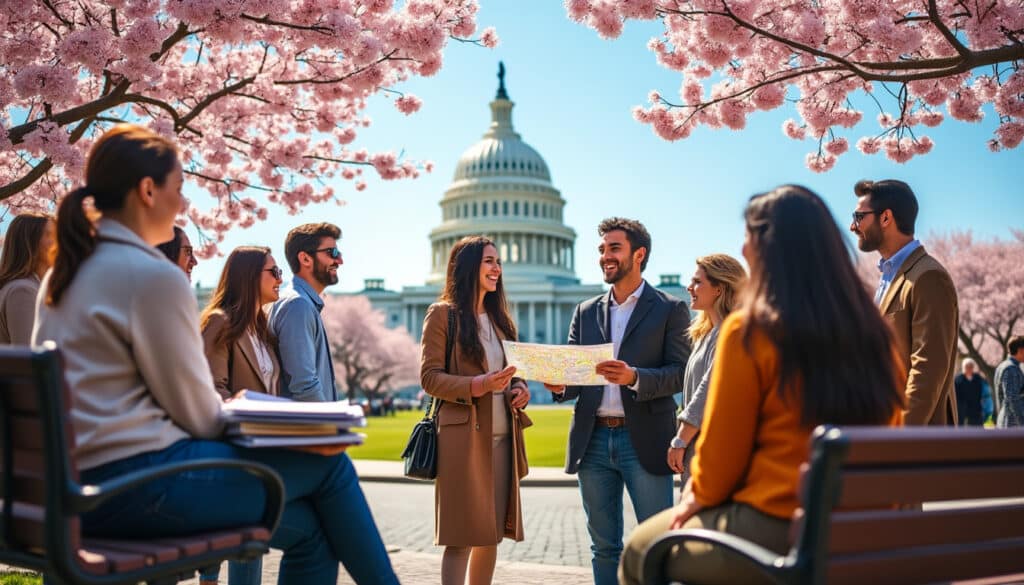
How to move to Washington DC legally
Moving to Washington D.C., the vibrant heart of American history and politics, can be a transformative experience. Whether you are drawn by career opportunities, cultural attractions, or the dynamic lifestyle, the journey to becoming a legal resident in this bustling…

Smoking, drugs, and red light laws in Washington DC
Washington, DC, a bustling city known for its political significance, also holds a complex array of regulations regarding smoking, drug use, and the storied red light laws. These regulations reflect the city’s commitment to public health, safety, and legal clarity.…
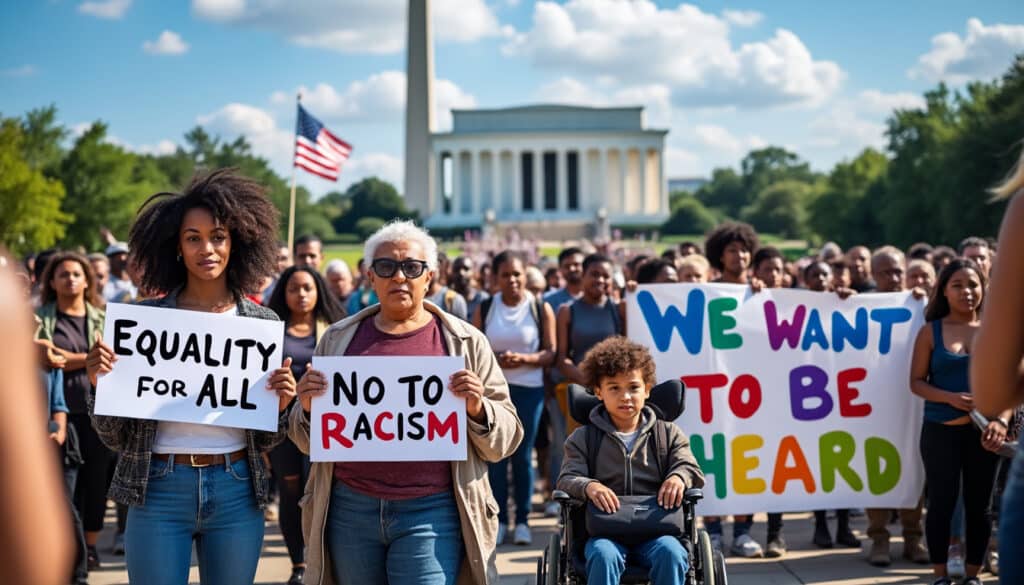
Social and discrimination issues in Washington DC
Washington DC is a city renowned for its historical significance and political heartbeat. However, beneath its surface lies an intricate web of social and discrimination issues affecting its diverse populace. From racial inequality and housing disparities to systemic bias in…

